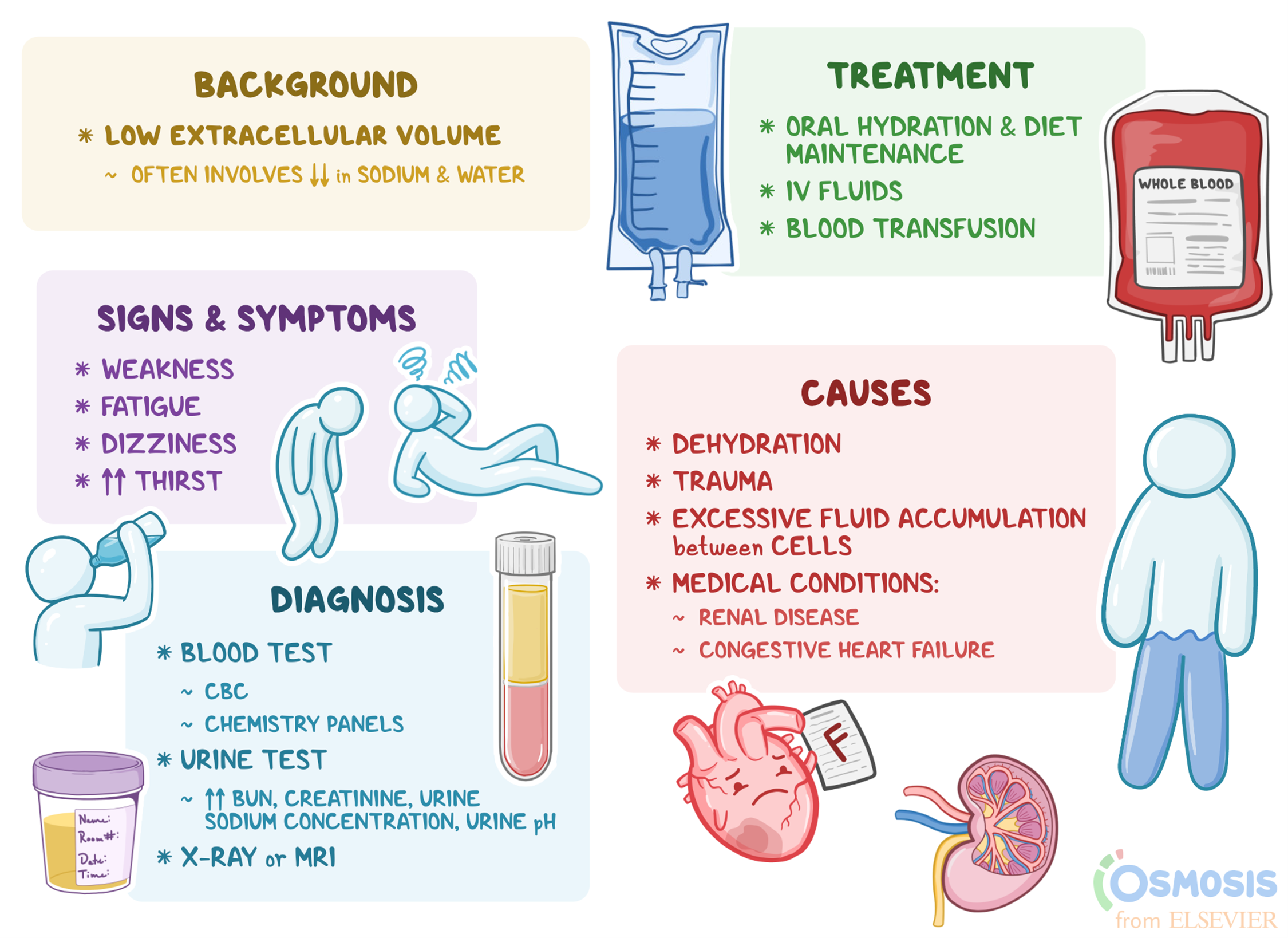Nursing Diagnosis
Nursing Diagnosis ( 5 Questions)
A nurse is teaching a client who is at risk for postpartum hemorrhage about the signs and symptoms of hypovolemic shock.
Which of the following should the nurse include in the teaching? (Select all that apply)
These are the signs and symptoms of hypovolemic shock, which is a life-threatening condition caused by severe blood loss. Hypovolemic shock can occur in postpartum women who have postpartum hemorrhage (PPH), which is excessive bleeding after childbirth.
Hypertension is not a sign of hypovolemic shock. In fact, hypotension (low blood pressure) is one of the signs of hypovolemic shock.
These are the signs and symptoms of hypovolemic shock, which is a life-threatening condition caused by severe blood loss. Hypovolemic shock can occur in postpartum women who have postpartum hemorrhage (PPH), which is excessive bleeding after childbirth.
These are the signs and symptoms of hypovolemic shock, which is a life-threatening condition caused by severe blood loss. Hypovolemic shock can occur in postpartum women who have postpartum hemorrhage (PPH), which is excessive bleeding after childbirth.
These are the signs and symptoms of hypovolemic shock, which is a life-threatening condition caused by severe blood loss. Hypovolemic shock can occur in postpartum women who have postpartum hemorrhage (PPH), which is excessive bleeding after childbirth.
The correct answer is choice A, C, D and E. These are the signs and symptoms of hypovolemic shock, which is a life-threatening condition caused by severe blood loss. Hypovolemic shock can occur in postpartum women who have postpartum hemorrhage (PPH), which is excessive bleeding after childbirth.
Choice B is wrong because hypertension is not a sign of hypovolemic shock. In fact, hypotension (low blood pressure) is one of the signs of hypovolemic shock.
Normal ranges for vital signs in postpartum women are:
• Heart rate: 60 to 100 beats per minute
• Blood pressure: 110/70 to 140/90 mmHg
• Respiratory rate: 12 to 20 breaths per minute
• Urine output: at least 30 mL per hour

Question 34.
